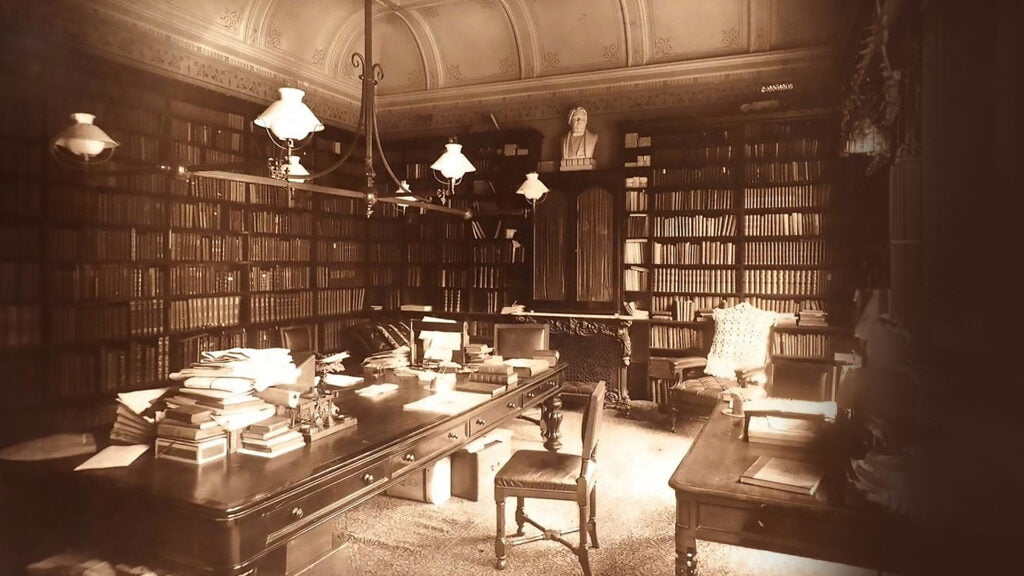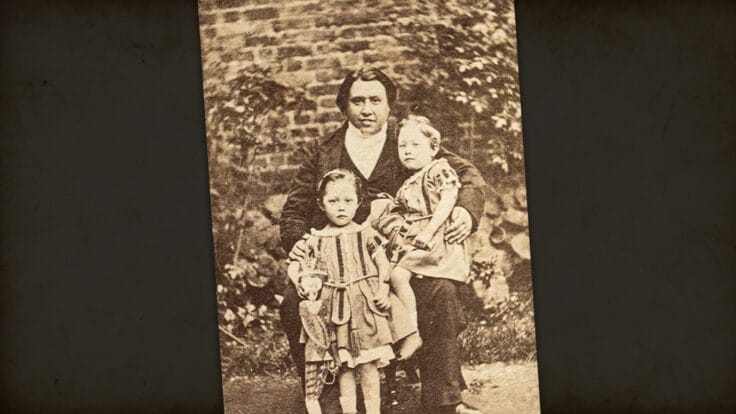I love books. I want other people to love books.
But I want them to love their own books, not mine.
My aversion to loaning out my books is not only because they are filled with highlights and notes that I might need or that I fear that some miscreant will crack the spine or dog-ear the pages (though both are true concerns).
I don’t like to loan books because I know that once a book is borrowed it rarely finds its way home.
C.H. Spurgeon, who had a personal library of 12,000 books, was especially aware of the problem of unreturned books.

In a letter dated October 9th of 1886, Spurgeon wrote:
I do not like being security for a man that he will return books, for no ordinary mortals ever do so. Please hold me harmless by scrupulously returning each vol. intact and with promptness. I don’t like it, but I have done it for you. God bless you.1
Clearly Spurgeon wasn’t against loaning out books from his personal library, though he understood that many borrow without returning. Still, he encouraged people to be generous with their books.
In the preface to his book Around the Wicket Gate he wrote, “My reader, if God blesses this book to you, do the writer this favor–either lend your own copy to one who is lingering at the gate, or buy another and give it away; for his great desire is that this little volume should be of service to many thousands of souls.”
Spurgeon had the most to say about borrowing and loaning books during an address to his beloved Pastors’ College:
…If you feel you must have more books, I recommend to you a little judicious borrowing. You will most likely have some friends who have books, and who will be kind enough to let you use them for a time; and I specially advise you, in order to borrow again, to return whatsoever is lent, promptly, and in good condition.
I hope there is not so much need that I should say much about returning books, as there would have been a few months ago, for I have lately met with a statement by a clergyman, which has very much raised my opinion of human nature; for he declares that he has a personal acquaintance with three gentlemen who have actually returned borrowed umbrellas!
I am sorry to say that he moves in a more favored circle than I do, for I have personal acquaintance with several young men who have borrowed books and never returned them. The other day, a certain minister, who had lent me five books, which I have used for two years or more, wrote to me a note to request the return of three of them.
To his surprise, he had them back by the next “Parcels’ Delivery,” and two others which he had forgotten. I had carefully kept a list of books borrowed, and, therefore, could make a complete return to the owner. I am sure he did not expect their prompt arrival, for he wrote me a letter of mingled astonishment and gratitude, and when I visit his study again, I feel sure I shall be welcome to another loan.
You know the rhyme which has been written in many a man’s book—
“If thou art borrowed by a friend,
Right welcome shall he be To read,
to study, not to lend, But to return to me.
Not that imparted knowledge doth Diminish learning’s store,
But books I find when once they’re lent,
Return to me no more.”
Sir Walter Scott used to say that his friends might be very indifferent accountants, but he was sure they were good “book-keepers.”
Some have even had to go the length of the scholar who, when asked to lend a book, sent word by the servant that he would not let the book go out of his chamber, but that the gentleman who sought the loan might come and sit there and read as long as he liked.
The rejoinder was unexpected but complete, when, his fire being slow to burn, he sent to the same person to borrow a pair of bellows, and received for answer that the owner would not lend the bellows out of his own chamber, but the gentleman might come and blow there as long as he liked.
Judicious borrowing may furnish you with much reading, but remember the man’s axe-head in the Scriptures, and be careful of what you borrow. “The wicked borroweth and payeth not again.”2

So be generous with your personal library—Spurgeon was.
But if you borrow someone’s book be sure to “return whatsoever is lent, promptly, and in good condition.”
1 The Letters of Charles Haddon Spurgeon, (Banner of Truth Trust, 1992), p. 144.
2 As found in C. H. Spurgeon’s Lectures to My Students




